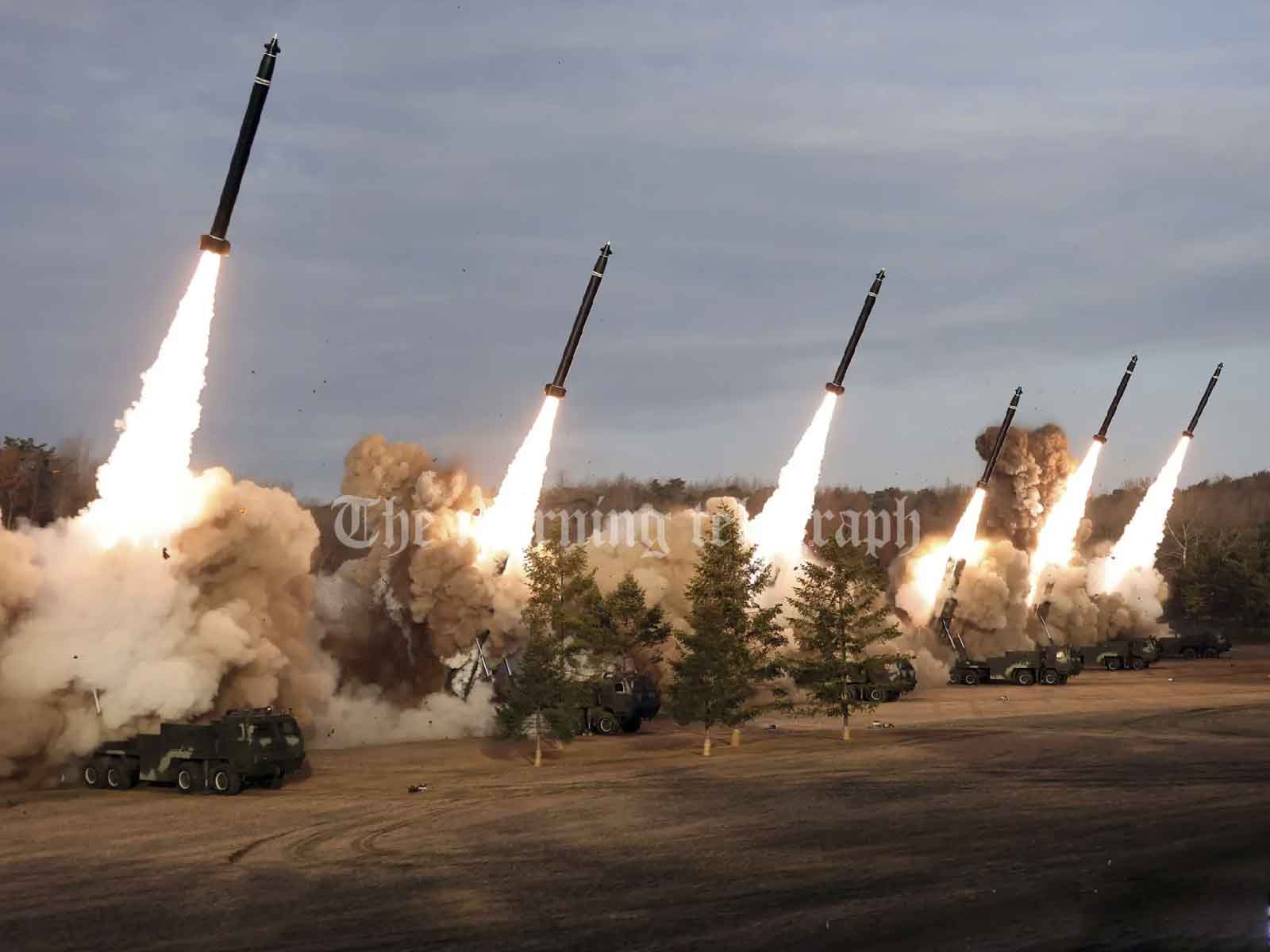
SEOUL, South Korea — North Korea fired multiple short-range ballistic missiles into its eastern sea on Tuesday, coinciding with the U.S. presidential election. The South Korean military confirmed that the missiles flew approximately 400 kilometers (250 miles), but did not disclose the exact number launched. Japanese Prime Minister Shigeru Ishiba reported that the missiles landed outside Japan’s exclusive economic zone, with no immediate damage reported.
This missile launch follows a recent flight test of North Korea’s newest intercontinental ballistic missile (ICBM), which is purportedly designed to reach the U.S. mainland. In response to that test, the United States conducted a show of force by deploying a long-range B-1B bomber in joint drills with South Korea and Japan over the weekend, prompting a stern response from Kim Jong Un’s sister, who accused rival nations of escalating tensions.
South Korean military officials suggest that North Korea may increase its military activities around the U.S. election to attract Washington’s attention. Additionally, North Korea’s military intelligence agency indicated that preparations for a seventh nuclear test might be complete.
Analysts believe Kim Jong Un may prefer a Republican win, particularly Donald Trump, whom he engaged in high-stakes diplomacy in 2018-19. In contrast, Kamala Harris, the Democratic candidate, has publicly vowed not to engage with authoritarian leaders like Kim.
North Korea’s recent claims regarding its Hwasong-19 ICBM being “the world’s strongest” are met with skepticism from experts, who argue that critical technologies are still lacking for a functional ICBM, including the ability to protect a warhead during atmospheric re-entry.
Tensions on the Korean Peninsula are escalating, with Kim’s regime showcasing its nuclear capabilities while allegedly providing military support to Russia amid the conflict in Ukraine. Reports indicate that approximately 10,000 North Korean soldiers are stationed near the Russian border, ready to assist in the ongoing war.
In a recent U.N. Security Council meeting, North Korea’s ambassador defended its nuclear arsenal as essential for national security, citing perceived threats from the U.S. Meanwhile, U.S. officials have reiterated the need to respond to North Korea’s expanding nuclear capabilities and the implications for international security.
The ongoing military drills by South Korea, the U.S., and Japan are viewed by North Korea as preparations for invasion, further justifying its nuclear ambitions. As the geopolitical landscape shifts, concerns mount over the potential ramifications of North Korea’s actions on regional and global stability.
The sequence of missile launches appears strategically timed, reflecting North Korea’s ongoing efforts to demonstrate military strength and project power during a pivotal moment in U.S. politics. Observers warn that such provocations could complicate diplomatic efforts aimed at denuclearization and stability in the region.




